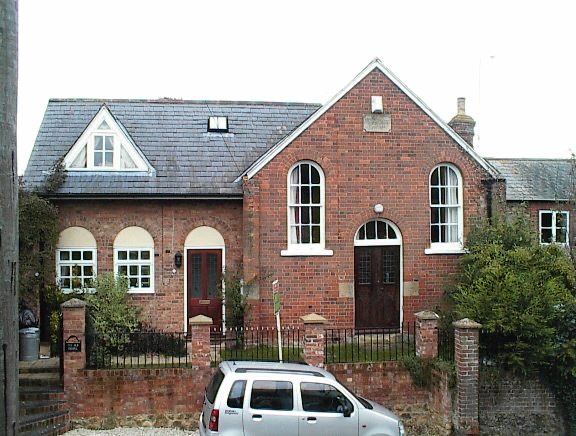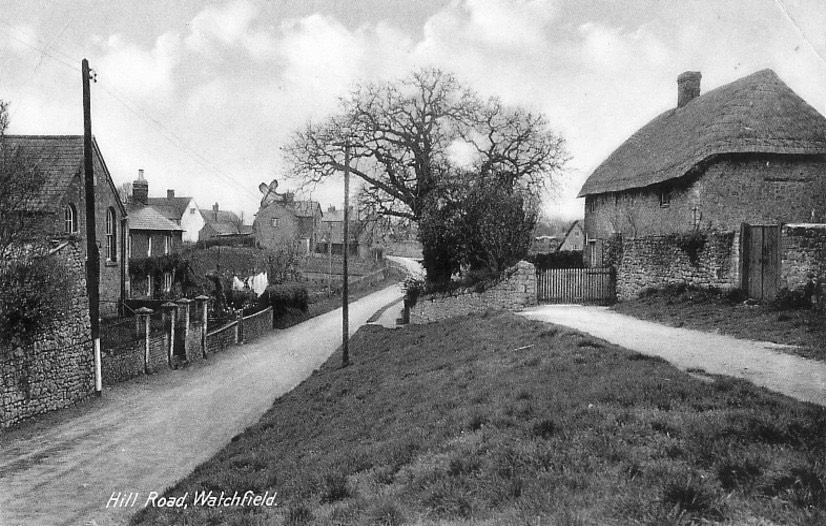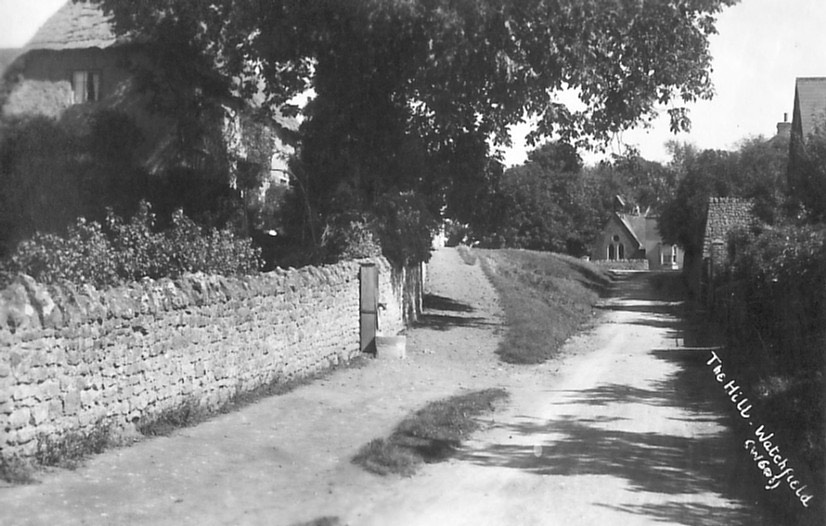The local newspaper often covered the events that were taking place at the Methodist Chapel, but two in particular give us a good indication of what took place in general. On Saturday 22 October, 1887 the Swindon Advertiser reported, ‘On Sunday last, the 16th anniversary of the Primitive Methodist Chapel was celebrated, when special services were held throughout the day. These services were largely attended, the musical part being led by the Fallow Band, Mr C. Nicholson of Highworth, preached in the morning, and the Rev J. Cope and Mr Alder (Faringdon), conducted the services in the afternoon and evening, the Rev J. Cope delivering a powerful discourse upon ‘Temperance,’ which was thoroughly appreciated. At two o’clock, prior to the service at Watchfield, members and friends of the connexion met at the Wesleyan chapel at Shrivenham, and, preceded by the band, marched to the Cross Trees, where a selection of music was gone through, and a short sermon preached by Mr Alder. On Monday afternoon the event was further celebrated by a tea and evening service, which was presided over by Mr Ball, addresses being given by the Rev J. Cope, and Messrs T. Smart and D. Newport. There being a debt upon the chapel, great pleasure was evinced upon the announcement being made that the whole of the promised donations had been handed in, which together with the collections on this occasion, stimulated the stewards in their efforts to ‘owe no man anything.’
Then there were the ‘Camp Meetings.’ The Swindon Advertiser of Saturday, 24 June, 1893 reported, ‘The annual Camp Meeting was held by the Members of the Primitive Church on Sunday last, in a field kindly lent by Mr Churchwarden Hedges, when a large number of persons gathered together and listened attentively to the various preachers. The meeting in the evening was very largely attended, no doubt drawn thither by the playing of the Watchfield Brass Band.’
In the latter part of the 19th century there were many meetings held under the name of Temperance. One meeting in particular took place on 15 February, 1881 and the subsequent article that appeared in the Swindon Advertiser explained what it was all about quite concisely, and started by stating that, ‘Some of the members of the Bourton Total Abstinence Society held a meeting in the Primitive Methodist Chapel at Watchfield.’ It continued, ‘There was a good attendance, and the appreciative manner in which the addresses, readings and recitations were received showed that the temperance movement had awakened an interest in the minds of the inhabitants, which was further manifested by eight persons at the close of the meeting signing the pledge. The chair was taken by Mr Mansfield, and the meeting commenced by singing the temperance hymn, ‘Hear us our Father.’ Prayer was then offered, and in short and clear address the chairman explained the object of the gathering, and invited any who were present to come and join them and make the pledge, and use their influence to stop the tide of drunkenness which was injuring the bodies and blunting the minds, and ruining the souls of their fellow countrymen. Mr J. Daubney then gave a very earnest address, speaking especially to those who were Christians and entreating them to give up the use of intoxicating drinks for the sake of others. Mr J. Burzey then read, ‘The Sunday School Scholar,’ and was followed by a very telling account by Mr Y. Eley of his personal experience as a farm labourer, in reference to the amount of work he could do, and how much better he felt able to do it now without the use of strong drink than he could when he formerly used it. Hymn, ‘Truth shall be victorius,’ was then sung, and Mr T. Gearing narrated the story of W. Summers, a working man. Mr W. Fouracres addressed the meeting, and as a parent spoke especially to parents as to the effects of good example to their children whilst as a labouring man he also testified to the advantage of total abstinence from strong drinks. Master F.H. Mansfield then recited ‘The Moderate drinkers soliloquy’; hymn ‘Do the right’ was next sung, when Mr Beasant as an old and stayed teetotaler, gave a very amusing speech, at the same time narrating some serious and solemn facts of the evils of drunkenness. Miss Mansfield then recited, ‘The liquor sellers misgivings,’ and Mrs Mansfield read, ‘I’ll take the pledge tomorrow.’ Hymn, ‘Away and sign the pledge,’ followed, and the chairman in a few earnest words entreated all who were there not only to become total abstainers, but also to look to Jesus as the only one able to save their souls. The Benediction was pronounced, the meeting closed and the pledge book produced. There was a very warm invitation given to the Bourton friends to come again.’
There wer e more meetings in the name of Temperance throughout the next decade, some held in the Primitive Chapel and some in the School House. The nature of them was always along the same lines as described above.

Picture 73. The Primitive Methodist Chapel built in 1872, now a domestic dwelling

Picture 74 (above). The Methodist Chapel is located on the left in this 1955 photo
Picture 75 (below). The gable end of the Chapel just appears on the right, in this 1925 picture, opposite the village water pump.
Both pictures Courtesy of Paul Williams

To read an interesting article on Primitive Methodism by Steven Carter concerning his ancestor Thomas, of Watchfield, please go to this LINK